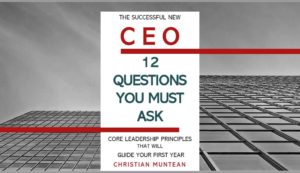The Secret to the Consent of the Governed

 “We hold these truths to be self-evident, that all men are created equal, that they are endowed by their Creator with certain unalienable Rights, that among these are Life, Liberty and the pursuit of Happiness. That to secure these rights, Governments are instituted among Men, deriving their just Powers from the Consent of the Governed . . .” – Declaration of Independence, the United States of America, 1776
“We hold these truths to be self-evident, that all men are created equal, that they are endowed by their Creator with certain unalienable Rights, that among these are Life, Liberty and the pursuit of Happiness. That to secure these rights, Governments are instituted among Men, deriving their just Powers from the Consent of the Governed . . .” – Declaration of Independence, the United States of America, 1776
Who made you the boss of me?
In the late 1700s, two novel concepts were conceived and then birthed. The first was the idea that governments were instituted for the purpose of securing certain rights. The second was that those governments derive their powers from the consent of the governed.
Neither of these concepts was new. But both were, and remain, rare in government.
At that time, governments primarily existed to serve the interests of those who held power. And the governed primarily were viewed as resources (or obstacles) towards achieving those interests.
Up until this point, leaders primarily used one (or all) of the three following approaches to legitimize their leadership:
- Divine right: The idea that the right to rule was given by God – not by the people.
- Might makes right: The idea that the ability to conquer or politically outmaneuver or subjugate an opponent was all the justification needed.
- Transactional: The idea that the person/people in power buy the right to lead through what they provide and enforce that right through either withholding something wanted or needed or taking it away.
Actually, not a whole lot has changed.
The tendency is for the focus of power to be on the person or people in power. I hesitate to even say leadership. Because power is the focus. Leadership is too rarely exercised.
Why would anyone follow you?
I’ve often done an exercise in workshops where I ask participants to shout out words that describe leadership.
The typical words include Direction, decision-maker, accountability, conflict resolution, caring, vision, integrity, problem-solver, etc.
Then I ask a series of questions:
- What do you notice in this list of words?
They notice that the list is filled with positive or neutral words. (It always is.) I suggest that this may indicate that at a gut level, we expect leaders to be caring, trustworthy and people who will bring good not harm.
The audience nods in agreement.
- How many of you have ever had a leader who didn’t exemplify this list of words?
The audience will react with hands in the air or grimaces at a bad memory.
- How consistently do you live out these words?
The audience always gets very quiet.
What about you? How consistently do you live out these words?
During the tumultuous 1960s, a retired AT&T executive, Robert Greenleaf, became persuaded that the post-WWII autocratic leadership style just didn’t work that well. Society was shifting.
On one hand – leaders were resented. On the other hand – leaders were needed.
Greenleaf wanted to understand the underpinnings of what he called, “legitimate power and greatness.” Basically, he wanted to answer the question: What kind of person will others willingly follow?
His answer was this: “The servant-leader is servant first… It begins with the natural feeling that one wants to serve, to serve first. Then conscious choice brings one to aspire to lead. That person is sharply different from one who is leader first, perhaps because of the need to assuage an unusual power drive or to acquire material possessions…”
As he contemplated corporate leadership, Robert Greenleaf arrived at a conclusion that was very similar to the conclusion of the framers of the Declaration of Independence.
Ideal leadership, like ideal governance, exists to serve.
It’s no mystery why politicians use the language of service in their campaigns and speeches. They understand that, at a core level, people want servant leaders. Even if that is too rarely delivered.
Some say that power corrupts. But more often, it magnifies.
I’ve watched leaders who began their leadership journey very timidly. Their actions were hesitant. Their decisions required an abundance of affirmation.
Their self-image was fragile. But without power or confidence – this fragility appeared to be humble or endearing.
Then they grew in their influence and comfort in their role. Their self-image didn’t mature. But with increased power came increased ambition. They became comfortable with making demands and manipulating others instead of asking for permission.
Their fragility was now expressed by being Machiavellian and controlling.
Power wasn’t the corrupter. It magnified who they were.
They were scared and unsure. Fear looks different when you don’t feel powerful from when you do. But it is still fear.
In my experience, pride and fear are the two more frequent, most dominant challenges for leaders. Few face and overcome them.
The language of service is used.
But acts of coercion or subversion are often what we get.
The problem with power held via coercion (force or transactions) or subversion (political game-playing and reality-twisting) is that credibility is lost. The pool of those who consent to be governed at work or in the community cooks down to the minority of those who still benefitted from it.
You get what you deserve
Many communities are experiencing active pushback or disengagement due to alienation. Many employers are struggling to hold onto employees and to figure out how to keep those who remain engaged.
Are you a leader? Are you are struggling with whether or how people follow?
Would you like to turn this around?
You aren’t likely to turn this dynamic around by blaming “others.” You won’t improve your situation by constantly scrambling to find, adjust, or hack the levers of control.
If you want something different, you probably need to become someone different. This may be a starting point:
“The best test [of a servant-leader], and difficult to administer, is: Do those served grow as persons? Do they, while being served, become healthier, wiser, freer, more autonomous, more likely themselves to become servants? And, what is the effect on the least privileged in society; will they benefit, or, at least, not be further deprived?” – Robert Greenleaf
Don’t hide behind the language of service, lofty vision, political philosophy. Don’t blame or deflect.
As the old saying goes, “The proof is in the pudding.” Reality reflects reality.
Look at the people you lead, especially the ones who won’t follow, as if looking into a mirror. Are they growing, becoming healthier, wiser, freer, more autonomous, more likely to serve…?
Many people talk, advocate and storm about privilege. Are the least privileged any better off as a result?
Check your leadership.
Take good care,
Christian
Are you interested in learning more about becoming a successful CEO? If so, get a free copy of my book The Successful New CEO. Not a new CEO? I’ve been told by “old hands” that they felt any CEO should read this. So, click here to get your copy today.
by “old hands” that they felt any CEO should read this. So, click here to get your copy today.
Let’s connect.
I’m passionate about helping leaders to create workplaces they love going to and increasing the value of the services they offer. My results-oriented approach is tailored to each client’s specific situation and needs. As a leadership coach, I have developed a wealth of resources to help you and your team grow and become stronger.
Weekly Newsletter – sign up to receive my weekly articles addressing critical leadership challenges and issues.
The Leadership Coach Podcast – In my podcast, we explore effective, high-impact, and enjoyable leadership. Subscribe.
Resources – Visit my website’s Resources page for e-books, webinars, training, and leadership coaching opportunities for you and your team.
There are 𝟭𝟮 𝗰𝗿𝗶𝘁𝗶𝗰𝗮𝗹 𝗾𝘂𝗲𝘀𝘁𝗶𝗼𝗻𝘀 to ask before accepting a new CEO position. Do you know what they are? Instantly download my free e-book here.
Find the value of your company with my free assessment tool: The Value Builder System
The Value Builder System™ is a 13-minute online questionnaire that evaluates your business on the eight factors that contribute more to its attractiveness and value. These factors are scored on a scale of 1-100. Businesses that score over 80 are likely to command 70%-100% higher value than others.
Opportunities
Free Resource: How To Accomplish More Without Doing More is a workbook I created to walk leaders through a process of helping you own your calendar, liberate your time, and still get more done. Download it for free!
Executive and Leadership Coaching: Do you feel overwhelmed? Are you not getting the results you expect from the effort you are putting in? Do you find yourself facing similar challenges time and time again? Would you like to change specific ways of relating or reacting? If you would like to experience predictable, measurable growth Contact me.
Profitable Exit Strategy Workshop: Are you a business owner or partner? Over 55? Starting to think about exiting your business or active management in the next 3-5 years?
- Curious about what your business might be worth?
- Would you like to discover the specific steps you need to take to increase its value and become highly attractive to a buyer?
- Are you planning on handing it over to family or employees and you want to ensure long-term success?
If so, contact me now
Categories
Get Christian’s Newest Book: Train to Lead

Download my free 10-page eBook:
How To Accomplish More Without Doing More:
Eight Proven Strategies To Change Your Life
Discover how to save eight hours during your workweek-even if you're too busy to even think about it. The resource every maxed out executive needs.

